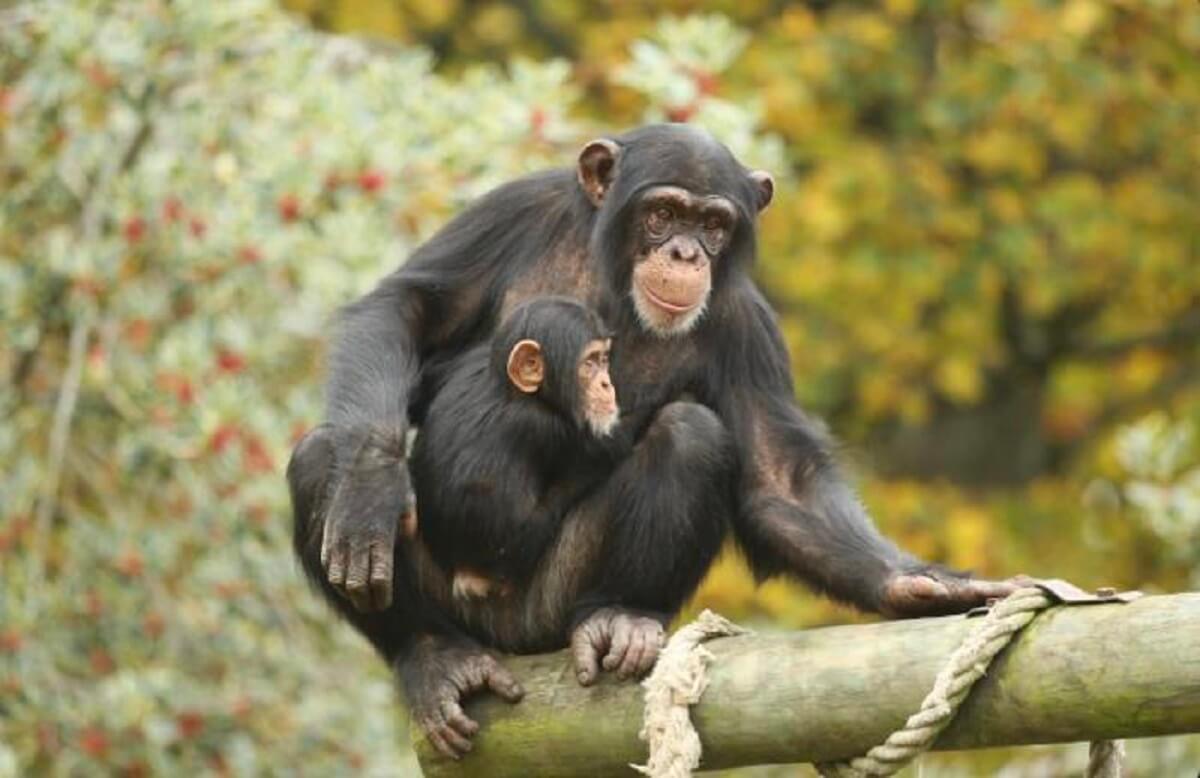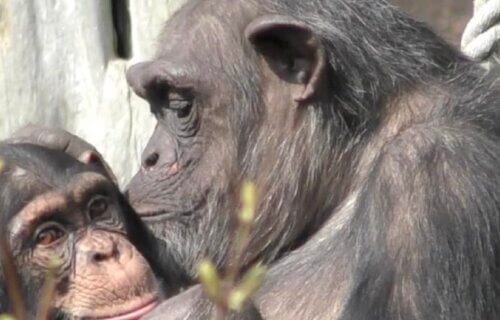BALTIMORE — Apes still remember friends they haven’t seen for over 25 years. New research has recorded the longest-lasting social memories ever documented in non-human species. The study highlighted how human culture may have evolved from our common ancestors with apes.
“Chimpanzees and bonobos recognize individuals even though they haven’t seen them for multiple decades. And then there’s this small but significant pattern of greater attention toward individuals with whom they had more positive relationships,” says the study’s senior author, Dr. Christopher Krupenye from Johns Hopkins University, in a media release. “It suggests that this is more than just familiarity, that they’re keeping track of aspects of the quality of these social relationships.”
The inspiration for this research stemmed from the researchers’ own experiences with primates, sensing recognition from the animals despite long absences.
“You have the impression that they’re responding like they recognize you and that to them you’re really different from the average zoo guest. They’re excited to see you again,” Dr. Krupenye shares.
The study involved chimps and bonobos from Edinburgh Zoo in Scotland, Planckendael Zoo in Belgium, and Kumamoto Sanctuary in Japan. Researchers used photographs of former groupmates, some unseen for up to 26 years, and analyzed the relationships each participant had with these individuals.
In the experiment, the apes were shown side-by-side photos of past acquaintances and strangers while enjoying juice. Eye-tracking technology measured the apes’ gaze, revealing they looked significantly longer at former groupmates and even longer at those they had positive interactions with.
For example, bonobo Louise displayed a robust bias in recognizing her sister Loretta and nephew Erin after more than 26 years. This suggests that great ape social memory can exceed 26 years, a substantial portion of their average 40 to 60-year lifespan, and might be comparable to human memory, which can persist up to 48 years post-separation.

“Our findings reveal that great apes possess cognitive mechanisms very similar to humans, including memory capabilities. This is what makes this study so exciting,” adds the study’s lead author, Dr. Laura Lewis, a biological anthropologist at UC Berkeley.
These long-lasting social memories in humans and our closest relatives imply that such memory was likely present in our common evolutionary ancestors millions of years ago, laying the groundwork for the evolution of human culture and the maintenance of relationships over extended separations. The researchers highlight another human-like aspect revealed in the study: apes remember the quality of their relationships.
“This pattern of social relationships shaping long-term memory in chimpanzees and bonobos is similar to what we see in humans, that our own social relationships also seem to shape our long-term memory of individuals,” Dr. Lewis emphasizes.
The study also raises questions about whether apes miss individuals they’re no longer with, especially friends and family. This research not only deepens our understanding of great apes and all endangered species but also sheds light on the potential impact of separation due to poaching and deforestation.
“This work clearly shows how fundamental and long lasting these relationships are. Disruption to those relationships is likely very damaging,” Dr. Krupenye concludes.
The study is published in the journal Proceedings of the National Academy of Sciences.
You might also be interested in:
- Human elbows and shoulders first evolved as brakes for climbing apes
- Our sense of order helps separate humans from other mammals
- Gorillas display remarkable resilience in the face of difficult adversity — even more so than humans
South West News Service writer Stephen Beech contributed to this report.

